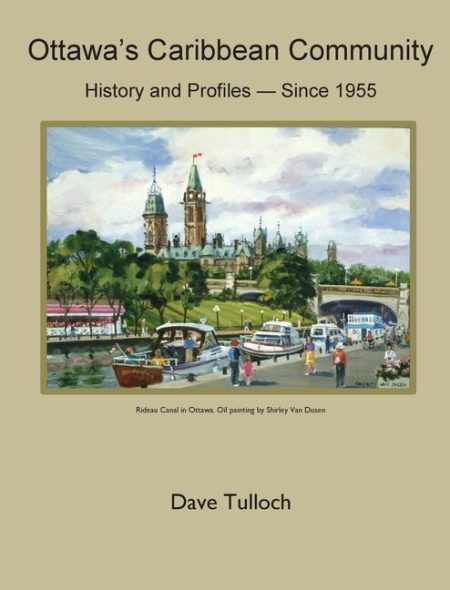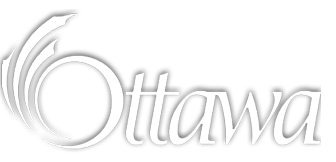On February 7, 2024, the Historical Society of Ottawa was pleased to feature Dave Tulloch on our Zoom Speaker series, who spoke to us about the history of Ottawa’s Caribbean Community. Dave came to Ottawa from Jamaica as a student in 1970, graduating from Algonquin College, the University of Ottawa, and finally received a Masters of Business Administration from Concordia University in Montreal. He has worked as a computer engineer, information systems consultant, and as a lecturer and tutor. He is also a columnist, author, and a volunteer musician and cameraman. Dave’s interest in the history of the Caribbean community in Ottawa was sparked by a visit, some years ago, to the Gloucester Branch of the Ottawa Public Library. He had taken his daughter to the library to help her with her school research project on black history in Canada, and discovered that the library had no resources on the subject. The situation remained at the back of his mind, and some years later, he took action.
Dave started us off with a brief background of early black settlement in the Ottawa area. Philemon Wright led five families to this area in 1800. His own, that of his brother, those of his two sisters, and a fifth headed by London Oxford, our first black settler. Relatively little is known about Oxford, he was a land owner and a raftsman, but left the region around 1809. Our next known black family, headed by Robert Richardson, arrived in Bytown about 1836, and may still have descendants in the area. A third followed in 1844 led by Perry Adams and later still, in 1885, Paul Barber arrived in Ottawa, where his family has remained. Dave pointed out that all these families came from the United States not the Caribbean.
Dave explained that Canadian government policy largely prevented black immigration until 1952, with some restrictions remaining for another decade. Thus it was not until 1952 that Herbert Brown, who was born in Jamaica but served with the Canadian Armed Forces during the Second World War, moved to Ottawa, after short stays in Montreal and Hull. He opened Browns Cleaners in 1957, growing the business, which he finally sold in 1978. At one time he maintained a book with information on black residents of Ottawa that he had met, but this has vanished.
Dave explained that there were three groups that came from the Caribbean to Canada starting in the 1950s. There were domestic workers, who came to Canada under the West Indies Domestic Scheme, there were students, primarily those with some economic means seeking post-graduate degrees and finally there were professionals, who from 1967 were granted entry based upon a point system. No matter the group, nor the variant processes they needed to follow to become citizens, they shared a common goal, to find a better life for themselves and their families, members of whom they could then sponsor.
Dave then gave us some examples of individuals who had come from the Caribbean, taken advantage of the educational opportunities available to them, and went on to make major contributions to their community and the country. Dr. Jean Augustine, who came to Canada under the West Indies Domestic Scheme, obtained degrees from Carleton University and undertook a career in education. She went on to be the first black woman elected to Parliament, and later served as the Parliamentary Secretary to Prime Minister Jean Chretien. Dr. Rudolph Gittens was born in Trinidad and came to Canada as a student in 1953. He would go on to be the team doctor for the Ottawa Rough Riders for over 20 years and then for Canada’s National Soccer teams. Gilbert Scott came to Canada in 1968 as a meteorological technician. As a community builder he was the first president of the Jamaica-Ottawa Community Association, and professionally, he joined the Federal Public Service and eventually served as the Commissioner of the Public Service between 1988 and 1994.
Although the Caribbean immigrants found success, it was rarely easy. Most relate instances of opportunities denied to them because of their race. They persevered and thrived, building their own support networks and associations.
Dave then gave us three examples of children of Caribbean immigrants that had gone on to extraordinary success. He noted that as the years pass, the new generations simply consider themselves to be Canadian, though they still value their heritage.
You can watch Dave’s full presentation on the HSO's YouTube channel .
Dave has also written a book based on personal interviews with many of the key community members, and, when necessary, on secondary sources. We highly recommend “Ottawa's Caribbean Community History and Profiles - since 1955”, which can be purchased at the following link: Dave Tulloch Ottawa's Caribbean Community since 1955 by Dave Tulloch, Hardcover | Indigo Chapters | The Pen Centre






